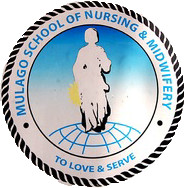This course provides learners with knowledge of the biophysical composition, biochemical composition and metabolic processes of the normal human body, and their regulation. It further equips students with knowledge about the different biomolecules, their metabolism and applications in health. It also equips students with knowledge about the central dogma of molecular biology, how it affects biochemical processes and the applications of underlying techniques in nursing practice.
Learning Outcomes
By the end of this course, the learners should be able to:
Competence
By the end of this course, the health tutor students should be able to:
Learning Outcomes
By the end of this course, the learners should be able to:
- Understand the different concepts of physical biochemistry
- Describe the structure and functions of biomolecules including carbohydrates, proteins, lipids, and vitamins.
- Describe the basic and clinical aspects of enzymology with emphasis on diagnostic enzymes.
- Understand and describe the various carbohydrate, lipid, protein and nucleic acid metabolic pathways, regulation and clinical significance.
- Understand the key concepts in molecular biology (Central dogma, gene expression and regulation, polymerase chain reaction, RFLP, and biotechnology)
- Explain how the various metabolic pathways contribute to overall homeostasis.
- Perform various biochemical assays, interpret results obtained and make inferences in relation health and disease.
Competence
By the end of this course, the health tutor students should be able to:
- Identify the molecular, biochemical and cellular mechanisms important to maintaining the body’s homeostasis
- Apply the principles of practical contemporary molecular biology techniques such as: DNA isolation, PCR, RFLP, gene cloning, gene therapy applied in medical practice and forensics
- Identify the altered structure and functions of biomolecules in the body and its major organ systems that are seen in various diseases and conditions.
- Perform and interpret various biochemical laboratory tests.

